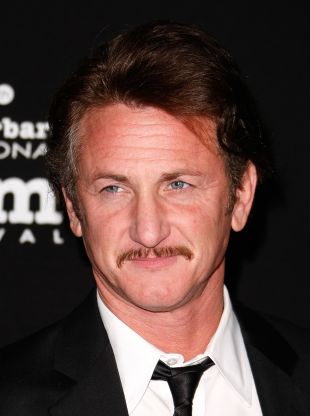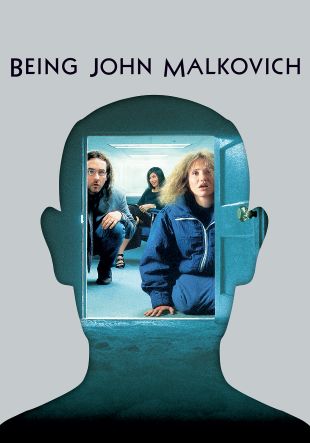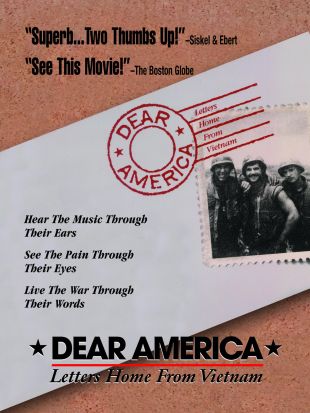Long the bad boy of Hollywood, Sean Penn is also among the most fiercely talented actors of his generation. He was born August 17, 1960, in Burbank, CA, the second son of actress Eileen Ryan and director Leo Penn. He grew up in Santa Monica, in a neighborhood populated by future celebrities Charlie Sheen and Emilio Estevez, the sons of actor Martin Sheen. Penn's older brother, Michael, is a singer/songwriter-turned- director, while younger sibling Chris is a noted character actor. The children spent much of their free time together, making a number of amateur films shot with Super-8 cameras. Still, Penn's original intention was to attend law school, although he ultimately skipped college to join the Los Angeles Repertory Theater. After making his professional debut on an episode of television's Barnaby Jones, he relocated to New York, where he soon appeared in the play Heartland. A TV-movie, The Killing of Randy Webster, followed in 1981 before he made his feature debut later that same year in Taps.
Penn shot to stardom with 1982's Fast Times at Ridgemont High; as the stoned surfer dude Jeff Spicoli, he stole every scene in which he appeared, helping to elevate the picture into a classic of the teen comedy genre; however, the quirkiness which would define his career quickly surfaced as he turned down any number of Spicoli-like roles to star in the 1983 drama Bad Boys, followed a year later by the Louis Malle caper comedy Crackers and the period romance Racing With the Moon. While none of the pictures performed well at the box office, critics consistently praised Penn's depth as an actor. A turn as a drug addict turned government spy in John Schlesinger's 1985 political thriller The Falcon and the Snowman earned some of his best notices to date, but Penn's performance was quickly lost in the glare of the media attention surrounding his very public romance with pop singer Madonna, which culminated in the couple's 1985 media-circus wedding.
While Madonna actively courted press attention, the private Penn made his loathing for the media quite clear; his run-ins with the paparazzi quickly became the stuff of legend, and the notoriety of his temper began to eclipse even his immense acting ability. His penchant for fisticuffs, combined with other civil infractions, ultimately resulted in a 30-day jail sentence; more seriously, his marriage to Madonna began to buckle under the weight of media scrutiny, and, as the couple's star collaboration in the 1987 movie Shanghai Surprise met with box-office disaster, their private relationship was also over. Soured by the Hollywood experience, Penn did not resurface prior to 1988's Colors, which proved to be his biggest hit in some time. He next appeared in Brian DePalma's Vietnam tale Casualties of War, followed by a turn opposite his idol, Robert De Niro, in the 1989 comedy We're No Angels.
After starring in the gangster melodrama State of Grace, Penn wrote and directed 1991's The Indian Runner, a film inspired by a Bruce Springsteen song and shaped in the image of the films of John Cassavetes. After an almost unrecognizable turn as a troubled attorney in the 1993 DePalma thriller Carlito's Way, Penn announced his intention to retire from acting in order to focus his full attentions on directing; however, after helming 1995's The Crossing Guard with Jack Nicholson and Anjelica Huston, he was back onscreen, winning an Academy Award nomination for his gut-wrenching portrayal of a death-row inmate in Tim Robbins' Dead Man Walking. By 1997, Penn's wishes for retirement were but a memory as he enjoyed his busiest year yet: In addition to starring opposite second wife Robin Wright in Nick Cassavetes' She's So Lovely -- roles which won both spouses acting honors at the Cannes Film Festival -- he also appeared in the David Fincher thriller The Game and in Oliver Stone's U-Turn. He found further acclaim the following year for his roles in the adaptation of David Rabe's Hurlyburly and Terrence Malick's The Thin Red Line. In 1999, he had a cameo appearance in Spike Jonze's Being John Malkovich and earned his second Oscar nomination as a callous '30s jazz guitarist in Woody Allen's Sweet and Lowdown, while 2000s adaptation of Anita Shreve's novel, The Weight of Water, starred Penn as a poet embroiled in a small town murder mystery. In 2001, Penn would play a fame-craving impressionist in The Beaver Trilogy, serve as narrator in director Stacy Peralta's skateboarding documentary Dogtown and Z-Boys, and direct the psychological drama The Pledge, which marked Penn's second collaboration with Jack Nicholson. In 2002, Penn would once again win critical praise with his Oscar-nominated portrayal of a developmentally disabled man struggling to retain custody of his daughter in I Am Sam.
After the 2001 terrorist attacks on the World Trade Center and Pentagon, the left-leaning actor's outspoken political views garnered a great deal of attention from right-wing pundits, including the much aggrieved Bill O'Reilly, who found himself on the receiving end of Penn's animosity in a controversial interview with Talk magazine. Though O'Reilly demanded his viewers boycott any of Penn's future films, it appears his career has remained relatively unscathed. In 2002, Penn directed a segment for the French-produced 9'11"01, which was met with mixed reviews, while his participation in Burkowski: Born Into This (2002) helped the film win a nomination for the Grand Jury Prize at the 2003 Sundance Film Festival.
The year 2003 was, in fact, an eventful year for Penn; he participated in two small but nonetheless critically acclaimed films -- Michael Almereyda's documentary This So-Called Disaster and Alejandro González Iñárritu's low-key urban drama 21 Grams -- while managing to claim yet another Hollywood success in actor/director Clint Eastwood's highly lauded Mystic River. In 2004, it was this third film that garnered Penn his fourth Academy Award nomination and, ultimately, his first win. The Oscar, coupled with a standing ovation by the audience, showed once and for all that Penn's unorthodox approach to his acting career hadn't had an adverse effect on his popularity.
The following year Penn would return to the screen to document one man's chilling descent into madness in the fact-based psychological drama The Assassination of Richard Nixon, but despite generally favorable reaction from critics the grim feature failed to make much of an impression at the box office. Subsequently sticking to politics with Sydney Pollock's 2005 thriller The Interpreter, Penn would this time find his character attempting to prevent the assassination of a high profile political leader rather than personally carry one out. By the time Penn essayed the role of a populist Southern politician modeled loosely on Depression-era Louisiana governor Huey Long, it seemed as if the serious-minded actor's career had finally become as political as the boat-rocking rhetoric that often found him sailing into the headlines. The third screen adaptation of Robert Penn Warren's influential novel, All the King's Men featured an impressive list of top-name Hollywood talent including Jude Law, Kate Winslet, Anthony Hopkins, Patricia Clarkson, James Gandolfini, and Mark Ruffalo.
In 2008, Penn received the Academy Award for Best Actor for his performance in Milk, a biopic starring Penn in the role of politician and civil rights activist Harvey Milk. Shortly afterwards, Penn starred in Fair Game, an adaptation of author Valerie Plame's novel of the same name, and co-starred with Brad Pitt and Jessica Chastain in director Terrence Malick's critically acclaimed drama The Tree of Life in 2011. In 2013, he had a small role as gangster Mickey Cohen in Gangster Squad and a supporting role in The Secret Life of Walter Mitty.



